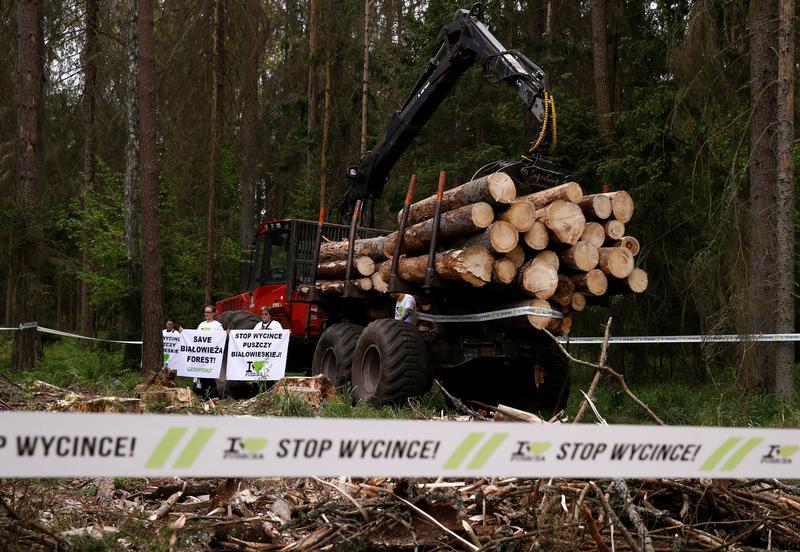Polish Crackdown Ahead of Climate Talks
| Publisher | Human Rights Watch |
| Publication Date | 1 February 2018 |
| Cite as | Human Rights Watch, Polish Crackdown Ahead of Climate Talks, 1 February 2018, available at: https://www.refworld.org/docid/5a8eb1034.html [accessed 27 May 2023] |
| Disclaimer | This is not a UNHCR publication. UNHCR is not responsible for, nor does it necessarily endorse, its content. Any views expressed are solely those of the author or publisher and do not necessarily reflect those of UNHCR, the United Nations or its Member States. |
Bill Will Limit Protests During COP24 Summit
February 1, 2018 12:49PM EST
By Todor Gardos
By Katharina Rall
 Environmental activists chain themselves to a logging machine during an action in the defence of one of the last primeval forests in Europe, Bialowieza forest, Poland May 24, 2017. © 2017 Reuters
Environmental activists chain themselves to a logging machine during an action in the defence of one of the last primeval forests in Europe, Bialowieza forest, Poland May 24, 2017. © 2017 Reuters
In mid-January, the Polish parliament passed a government-sponsored bill which, will hamper the rights of environmental activists to protest at UN climate talks in December and subject them to government surveillance. President Andrzej Duda signed the law on January 29.
The summit, known as the COP24, taking place in the southern city of Katowice, brings together states parties to the UN Framework Convention on Climate Change, and thousands of experts, journalists, businesses, and nongovernmental groups.
Environmental activists and indigenous peoples who work to protect the environment are likely to be less welcome. The new law explicitly forbids spontaneous demonstrations in Katowice during the talks, which will make it difficult for groups to respond to developments at the climate negotiations.
The law also allows the police to obtain, collect, and analyze personal data about registered conference participants or people associated with its organization, without judicial oversight or their knowledge and consent. Activists fear that the measures could be used to spy on them.
It won't be the first time the Polish authorities have restricted the right to protest and the rights of nongovernmental groups. As a recent Human Rights Watch report showed, the government has previously changed the law to support demonstrations it approves of and ban related counter-protests. The government has also given the state security agency extraordinary surveillance powers without effective judicial review.
The new law not only threatens civic space in Poland, but could also limit the success of the climate summit. Activists play an important role in the global climate debate by providing relevant information to policymakers and the media. And nongovernmental groups and indigenous peoples can only carry out their important work where they can effectively exercise their right to freedom of assembly.
Link to original story on HRW website

